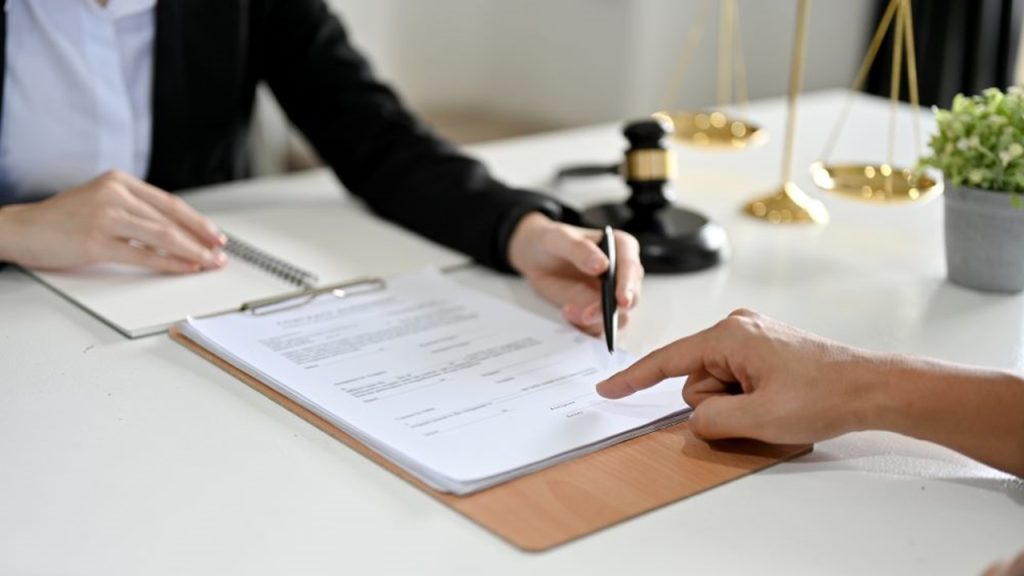When tragedy strikes in the form of an injury, it’s not just the physical pain that one has to endure, but also the labyrinthine journey through the legal system to seek rightful compensation.
This journey is fraught with pitfalls, and one misstep can cost you dearly. We’ll unravel the complexities of injury claim lawyer assistance in personal injury claims and spotlight the critical mistakes to avoid, ensuring you’re well-equipped to navigate this challenging terrain with the right legal ally by your side.
Key Takeaways:
- Understanding the role and importance of a personal injury lawyer.
- Insights into common types of personal injury cases.
- Key factors to consider in personal injury claims and lawsuits.
Table of Contents:
- The Role of a Personal Injury Lawyer
- Common Types of Personal Injury Cases
- Avoiding Mistakes: 3 Key Factors
- Research and Due Diligence
- Frequently Asked Questions
The Role of a Personal Injury Lawyer
A personal injury lawyer is more than just an attorney; they are your ally in a battle for justice.
Their role extends beyond legal representation; they are guides through the daunting legal maze, advocates in your darkest hours, and strategists who turn the tide in your favor.
- Legal Assistance: A personal injury lawyer provides crucial legal assistance, especially in complex cases like nursing home negligence, ensuring that your rights are protected at every turn.
- Resource Access: With a lawyer by your side, you gain access to a wealth of legal resources, insights, and expertise that can be pivotal in your case.
How They Provide Legal Help
- Case Evaluation: They assess the strengths and weaknesses of your case, offering realistic expectations.
- Legal Representation: From courtrooms to negotiation tables, they represent your interests vigorously.
- Complexity Navigation: They simplify the complexities of legal jargon and procedures for you.
Common Types of Personal Injury Cases
Personal injury law covers a broad spectrum of cases, each with its unique challenges and intricacies. Understanding these types is crucial in identifying the right approach for your case.
| Type of Case | Description |
| Accidents and Injuries | These include incidents like car crashes or slip and fall accidents. |
| Workers’ Comp | Injuries occurring at the workplace. |
| Car Accidents | One of the most common types, often involving complex insurance issues. |
| Negligence | Cases where injury is caused due to someone’s carelessness. |
| Wrongful Death | Claims made when an injury leads to death. |
| Dog Bites | Specific laws govern these cases depending on the jurisdiction. |
| Slip and Fall | Injuries occurring due to unsafe property conditions. |
| Medical Malpractice | Involve injuries due to medical negligence (a specialized area of personal injury law). |
| Product Liability | Injuries caused by defective or dangerous products. |
| Defective Products | A sub-category of product liability focusing on product defects. |
Avoiding Mistakes: 3 Key Factors
Personal Injury Claims
In the world of personal injury claims, timing is not just a factor; it’s the cornerstone. Delaying your claim can be detrimental, as statutes of limitations are unforgiving.
- Timely Filing: Understand the statute of limitations for your specific type of injury claim.
- Evidence Collection: Gather all necessary evidence promptly. This includes medical records, witness statements, and any other documentation that can bolster your case.
Personal Injury Lawsuit
The legal process for personal injury lawsuits can be as intricate as a spider’s web. It’s essential to navigate this with precision and awareness.
- Negotiation and Settlements: Be aware of the potential for out-of-court settlements and their pros and cons.
- Courtroom Proceedings: Prepare for the possibility of taking your case to court if a settlement cannot be reached.
Selecting the right personal injury lawyer is akin to choosing a chess partner in a game where the stakes are your future and well-being.
- Local Expertise: Opt for a lawyer who understands the local legal landscape. For example, if you’re dealing with a traumatic brain injury, consider a specialized attorney.
- Consultation Value: Take advantage of free consultations to gauge the lawyer’s expertise and approach.
- Service Evaluation: Assess their track record, approach to client communication, and overall strategy.
Research and Due Diligence
Before you embark on this legal journey, equip yourself with knowledge. Research is your armor in this battle for justice.
- Lawyer Reviews and Ratings: Look for reviews and ratings of potential lawyers to understand their reputation and effectiveness.
- Testimonials: Read testimonials to get insights into other clients’ experiences and the outcomes of their cases.
- FAQs and Blogs: Utilize the FAQs and blogs on law firm websites like Flexner Houser Injury Law to educate yourself about various aspects of personal injury law and the legal process.
Final Thoughts
In personal injury cases, knowledge is not just power; it’s your shield and sword. Understanding these aspects of personal injury law and being well-prepared can make all the difference in your quest for justice and fair compensation.
With the right legal ally by your side, and armed with this knowledge, you stand a much better chance of navigating the legal battleground successfully.
Contact Flexner Houser Injury Law Today
If you’re ready to take the next step in your personal injury case, the team at Flexner Houser Injury Law is here to stand with you. With years of experience and a commitment to your case, we’ll guide you through every step of the process. Reach out to us at our Wilmington, NC office by calling 910-794-3221 or toll-free at 1-800-FLEXNER (1-800-353-9637). You can also visit us at 3805 Oleander Drive, Wilmington, NC 28403 for a personal consultation. Don’t navigate this journey alone; let us be your legal guide and advocate.
Frequently Asked Questions
1. Do I Need a Lawyer for a Personal Injury Claim?
- Needing a lawyer for a personal injury claim largely depends on the complexity of the case and the severity of the injuries. For straightforward cases with minor injuries, you might handle the claim yourself. However, if the injuries are severe, the case is complex, or the liability is disputed, it’s advisable to seek legal representation.
2. What Should I Ask a Personal Injury Lawyer?
- When consulting a personal injury lawyer, important questions include inquiring about their experience with similar cases, their success rate, the fee structure, and the estimated timeline for your case. Additionally, ask how they will communicate with you and what role you will play in the process.
3. How Do I Find a Good Personal Injury Lawyer?
- To find a good personal injury lawyer, start by seeking referrals from friends, family, or other lawyers. Research online for lawyers with good reviews and strong reputations. Look for attorneys who specialize in personal injury law and have a track record of successful outcomes in similar cases.
4. What Is a Personal Injury Claim Contingency Fee?
- A personal injury claim contingency fee is a payment structure where the lawyer’s fees are a percentage of the settlement or award received. Typically, this fee ranges from 25% to 40% and is usually dependent on the complexity of the case. At Flexner Houser Injury Law we will discuss our fee structure with you at the initial consultation. Our fee is contingent on the success of your claim, and if your claim is unsuccessful, you generally do not pay any attorney fees.
5. What Is the Statute of Limitations for Personal Injury Claims?
- The statute of limitations for personal injury claims varies by state, but it typically ranges from one to six years from the date of the injury. In North Carolina, the statute of limitations for a personal injury claim is three years while the statute of limitations for a worker’s compensation claim is two years. With the various statutes of limitation that can be applied, it is crucial to file a claim within this period, or you risk losing your right to pursue legal action.
6. What Damages Can I Recover in a Personal Injury Claim?
- In a personal injury claim, you can potentially recover damages for medical expenses, lost wages, and pain and suffering. In some cases, you may also be eligible for punitive damages if the defendant’s conduct was particularly egregious.
7. What Is the Difference Between a Personal Injury Lawyer and a Criminal Lawyer?
- The primary difference is in their areas of practice. A personal injury lawyer focuses on civil law, helping clients receive compensation for injuries due to someone else’s negligence. A criminal lawyer, on the other hand, deals with criminal law, defending or prosecuting individuals accused of criminal offenses.
8. How Long Does a Personal Injury Claim Typically Take?
- The duration of a personal injury claim can vary widely, typically ranging from a few months to several years. Factors affecting the timeline include the complexity of the case, severity of injuries, and the willingness of parties to settle.
9. What Should I Do If I Am Injured in an Accident?
- If you are injured in an accident, first seek medical attention. Document the incident and your injuries, gather contact information of any witnesses, and report the accident to the relevant authorities. Consider consulting a personal injury lawyer to understand your legal rights and options.


